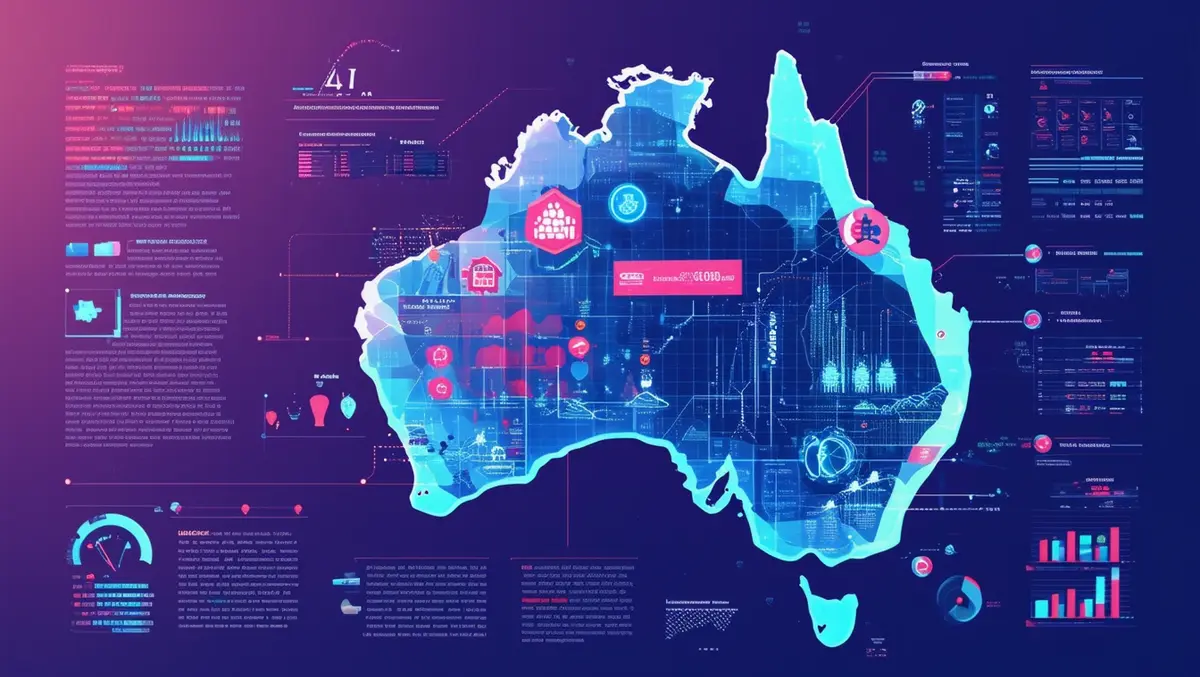
V2 Digital report highlights AI adoption challenges in Australia
Australian digital and data consultancy V2 Digital has launched its inaugural State of AI in Australia report, offering valuable insight into the adoption of artificial intelligence (AI) across various industries and departments.
The comprehensive research delves into the barriers to AI implementation, strategies to overcome these obstacles, and the potential benefits AI provides for efficiency and competitive advantage.
A survey of over 400 professionals at various seniority levels revealed that while AI is regarded as a business priority and widely acknowledged as necessary, organisations remain immature in their adoption of the technology. The report underscores the need for businesses to implement thorough training programs, adequately allocate budgets, and prioritise AI in their strategic planning.
To provide a comprehensive understanding of the data, V2 Digital consulted with 12 industry leaders from prominent technology organisations. These leaders, representing entities such as QBE Insurance, Boston Consulting Group, TechDiversity Foundation, TikTok, and UNSW, shared their experiences and perspectives on the challenges and opportunities highlighted by the research.
Steve Tzortzidis, Director of Data and AI at V2 Digital and author of the report, commented on the evolving nature of AI and the importance of understanding current organisational challenges to improve capabilities. "AI will undoubtedly shape the future in ways impossible to predict. We set out to benchmark how we're currently tracking on this AI evolution and better understand organisational pain points. Organisations need a level of data maturity with the right foundations and governance in place to effectively embrace and utilise AI," said Tzortzidis.
"Whilst the majority of Australian professionals acknowledge the business benefits of AI, businesses are failing to harness it. More than four-fifths (86%) agree we should be embracing AI, but organisations are slow to act with only one in five (21%) respondents describing their organisation as mature in AI," he added.
Chief Technology Officer at V2 Digital, Dr Pete Stanski, identified several key barriers that businesses face, including competing priorities and bias. "The data revealed there are too many urgent to-do's on the list, so business leaders are oscillating and struggling to decide what should be ranked number one. Too many competing priorities was the number one barrier (43%) followed by lack of skills (38%) and lack of strategy (33%). Additionally, a whopping 72% of respondents have personally experienced AI bias, which shows it is a prevalent problem that both individuals and businesses need to be aware of and consider when using the technology," Stanski said.
The research highlighted a critical need for businesses to form the right teams and introduce AI training programs to equip their workforce with essential skills. Tzortzidis noted, "Australians widely accept that we live in an AI age and it is here to stay. Professionals across all industry sectors know if they want to succeed, they need to upskill in this area. Respondents rated the importance of upskilling in AI for future career prospects at 7.5 out of 10. Younger respondents aged 18 to 44 rated the need higher (7.64 out of 10), then this started to dip with each age bracket following. Unsurprisingly, the IT industry cared most about their AI skills for future career opportunities, with a score of 7.65 out of 10. This highlights that while AI training is good for business, it's also what employees desire."
When assessing the current level of AI skills within organisations, the average rating was 4.5 out of 10, and current upskilling efforts were deemed inadequate. "When asked about their organisation's AI training, Aussie professionals offered an average rating of 3.17 out of 10," said Tzortzidis. Encouragingly, 42% of respondents indicated that starting a training program was a key strategy to overcome AI adoption barriers, with budget allocation and recruiting AI-skilled staff also mentioned as essential steps.
The report also indicated that the public sector significantly lags behind other industries in AI adoption. "The Public Sector isn't keeping up when it comes to AI. Respondents consistently indicated Government is failing to embrace AI, highlighting its immaturity and noting that AI isn't seen as a business priority. Respondents indicated that the use of AI isn't encouraged, and there aren't currently the skills needed within the public sector workforce to future-proof it," Tzortzidis reported.
Less than 1 in 10 (6%) of Government respondents described their organisation as "mature" or "very mature" in AI. They also rated the level of AI skills of their personnel at just 2.75 out of 10, with AI training receiving a low rating of 1.56 out of 10.
Nevertheless, more than three-quarters (77%) of the overall respondents believe AI is either a business priority or a critical business priority. Efficiency was identified as the primary driver for AI adoption, followed by competitive advantage and customer engagement. The study also uncovered over 25 different AI use cases within workplaces, underscoring AI's widespread applicability.
"By leveraging this report and support from leading AI technology consultants, organisations can chart a course towards AI maturity, driving innovation, efficiency, and sustainable growth in 2024 and beyond throughout Australia," concluded Tzortzidis.


